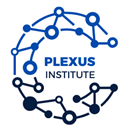Gathering and sharing stories is a human behavior both ancient and universal. Our stories express our understanding even of the most complex situations; reflect our core values; and articulate our intentions for future action.

“Strategic storytelling has also been enlisted to change attitudes and behaviors. Two studies from the health care industry show its power: Penn State College of Medicine researchers found that medical students’ attitudes about dementia patients, who are perceived as difficult to treat, improved substantially after students participated in storytelling exercises that made them more sympathetic to their patients’ conditions. And a University of Massachusetts Medical School study found that a storytelling approach has also been effective in convincing populations at risk for hypertension to change their behavior and reduce their blood pressure.”
For nearly 20 years, Plexus Institute served as a leading voice in using “stories” to share and apply knowledge about the unique ways that complex adaptive systems (which is inherent in every human system) influence how people and organizations work together.
Stories have been shared for as long as humans have interacted. As Monarth aptly concludes his article, “Life happens in the narratives we tell one another. A story can go where quantitative analysis is denied admission: our hearts. Data can persuade people, but it doesn’t inspire them to act; to do that, you need to wrap your vision in a story that fires the imagination and stirs the soul.”
What distinguishes the work at Plexus is the focus on helping, through researched and innovative programs, communities and organizations achieve better results as they engage with and act into their most difficult and ambiguous challenges. Like all complex adaptive systems, Plexus has had to consider its own original organizational structure and phases of work in order to more effectively respond to current needs and opportunities in the network.
So, as we experiment with a new organizational structure and patterns of working together we have an opportunity to both share “stories” and discover with others in the network the unique and diverse perspective and expertise found in every Plexus member, project and story.
Naturally Stories will play a leading role in our two upcoming Plexus Pop-ups.
In our first Pop-up event this week, Bruce Waltuck, a Plexus Catalyst and consultant is launching a new initiative called COMPlexus Stories, which will be a platform for individuals or organizations to share their COMPlexus story (in ten minutes) as the starting point for an open discussion. These stories will be recorded, archived, and available to others to hear. The following questions will serve as a guide for connecting the stories to new ideas, projects, and people.
- What is possible? (For both network members and client systems)
- What is next? (To offer network members and clients products, services and project opportunities)
- What would attract and enable people to come together to learn and achieve more in their communities and organizations?
- What would the next generation of the Plexus Institute – what we are calling Plexus 2.0 – look like?
We want your story. If you are interested in sharing or experiencing what Plexus Institute has meant over the years, contact Bruce Waltuck, host for the series of Plexus pop-ups –
WHAT’S YOUR COMPLEXUS STORY?
____________________________________________________________
When you ask for a story, you are inviting a deeper level of input and diverse perspectives. Ask for a story to find out how someone (or a team) solved a problem when no one else could. Then ask for the back-story that explains how the idea came into being. Then find other stories that offer additional insight into similar problems with alternative solutions.
Our second Pop-up invites another opportunity for stories to be shared and developed into a book for how to Manage in Complex Environments: Applying Complexity Theory and Outcome Management to Global Problems.
Plexus Catalyst, Marc Narkus-Kramer worked at the MITRE Corporation and experienced the power of complexity thinking and practice that Plexus introduced to a project. Having recently retired from MITRE, Marc decided to explore how to build a process for organizational understanding and implementation of an integrated method of using complexity as a guiding principle for outcome management.
He is gathering members of the network to co-author a book that emphasizes projects that demonstrate how complexity and traditional approaches successfully applied to “localized” problems serve as a model for larger scale problems with similar properties? Are you ready to be engaged in creating new complexity based conversations and practices to address the global problems of our day?
If you are interested in finding out more about this project contact Marc directly at mnarkus@verizon.net or 703-298-6635 with any questions prior to the Pop-Up.
